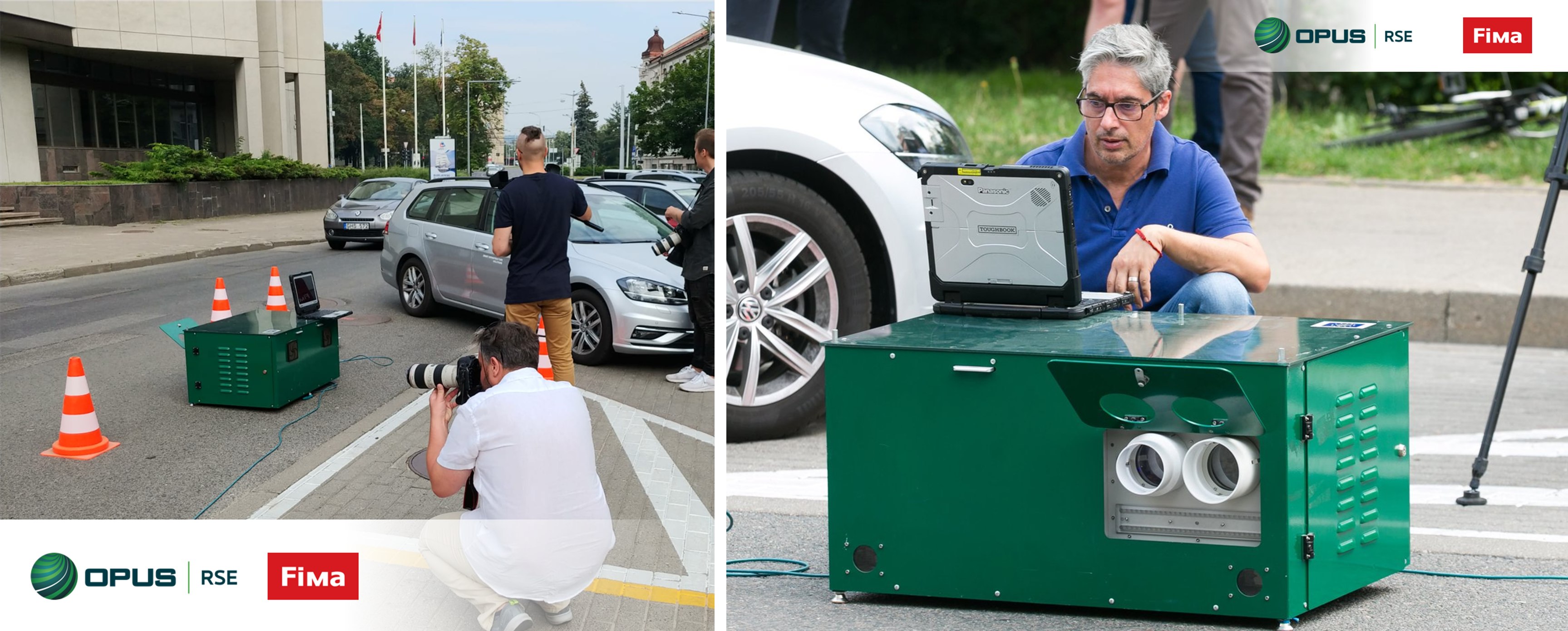News
Lithuania moves towards remote monitoring of road traffic emissions: a study confirms the feasibility and benefits of RSD technology

OPUS RSE, the world leader in the manufacturing and commercialization of remote vehicle emissions measurement technology (RSD, Remote Sensing Devices), welcomes the recent publication by the Ministry of Environment of Lithuania, which confirms the technical, economic, and social feasibility of implementing systems for the remote monitoring of real vehicle emissions.
The study, commissioned by the Lithuanian Ministry of Environment itself, assessed the maturity of this technology and the different implementation modalities, concluding that a hybrid option — with both fixed and mobile equipment on the roads — is the most effective approach. With this approach, up to 80% of Lithuania’s vehicle fleet could be monitored, identifying approximately 2% of super-polluting vehicles in circulation, responsible for a disproportionate share of emissions.
The economic results are equally compelling: with a very reasonable investment, estimated at €12.7 million over a 15-year period, the country would obtain social and economic benefits close to €600 million. In addition, it is projected that each year road transport emissions would be significantly reduced: nitrogen oxides (NOx) by 6.4% (1,446 tonnes), particulate matter by 10.3% (193 tonnes), and carbon monoxide by up to 50% (5,817 tonnes).
The Acting Minister of Environment, Povilas Poderskis, stressed that “this is not an expenditure, but a sustainable benefit for society: cleaner air, lower healthcare costs, and a direct improvement in the quality of life of the population. Remote monitoring of road traffic emissions would also allow for a precise reduction in the number of highly polluting vehicles, without affecting drivers who comply with the regulations.”
The publication also notes that road transport is the largest source of nitrogen oxide emissions in Lithuania, accounting for nearly 60% of total national emissions in 2023. Due to the failure to meet European commitments on emissions reductions, the country is facing infringement procedures by the European Union. The implementation of remote vehicle emissions monitoring is therefore emerging as a key tool for complying with EU obligations and improving public health. According to the European Environment Agency, more than 2,000 people die prematurely every year in Lithuania due to air pollution.
Pilot tests carried out in 2021 in the capital, Vilnius, had already confirmed that between 2% and 4% of vehicles generate nearly half of the city’s transport-related pollution. OPUS RSE’s RSD technology is specifically designed to identify these critical pollution hotspots quickly, accurately, non-intrusively, and fairly.
“This study reinforces what OPUS RSE has been demonstrating for years in other countries: remote measurement of vehicle emissions to identify highly polluting vehicles is the most effective, fair, and cost-efficient way to guarantee clean air in our cities, while minimizing the impact on citizens’ free mobility. Lithuania is paving the way in Eastern Europe, and we are convinced that many other countries will follow this example,” said Josefina de la Fuente, CEO of OPUS RSE.
Press release of the Ministry of Environment of Lithuania:

